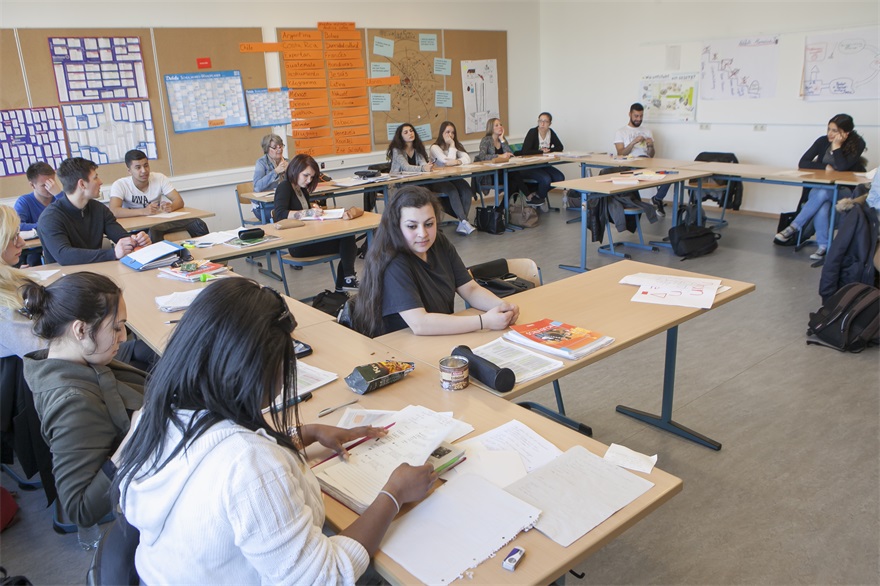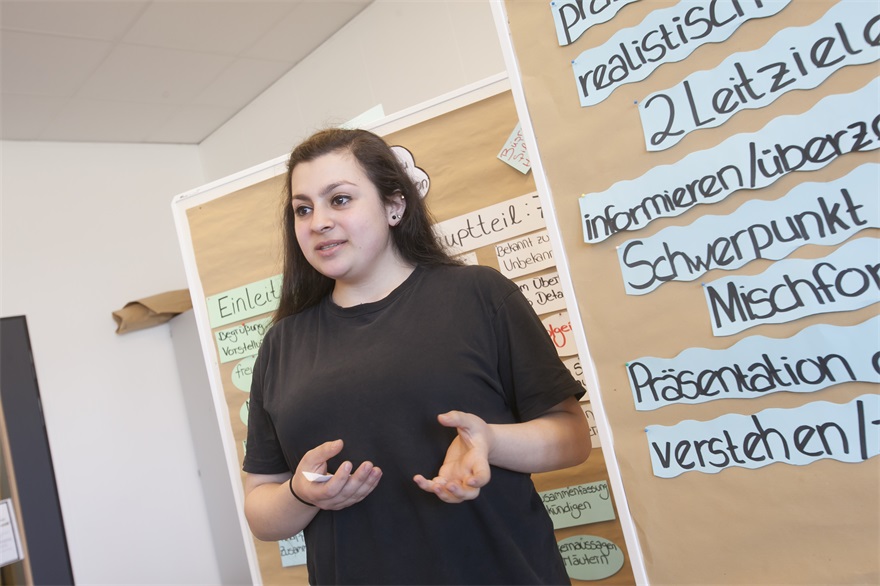
Language Development
Language Development in the Vocational Upper Secondary School
Are you considering pursuing the Abitur? But feeling uncertain about all those complex texts you’ll have to read in every subject? Another three years of German, writing essays, struggling with spelling and punctuation?
Don’t worry — that’s exactly where we come in.
Because not all “German” is the same. Do you speak to your friends at the sports club the same way you would to your employer? Do you write a text message the same way you would write a job application? Which one do you find more challenging?
Many of our students share these concerns, which is why developing their language skills is a central objective of our teaching — across all subjects and throughout the entire upper secondary level.
The Concept of Language Development in the Introductory Phase
Acquiring academic language as preparation for the complex demands of the upper phase is a prerequisite for successfully completing the Abitur. This is a key objective of the curriculum in the introductory phase of the vocational upper secondary school.
To achieve this, all subject teachers in Year 11 have agreed on a unified approach that integrates language development into every subject. It takes precedence across the curriculum. The aim is to gradually guide students — through language-sensitive instruction — toward both understanding and confidently using academic language (as well as subject-specific terminology) in oral and written form.

This includes targeted practice phases focusing on subject-specific vocabulary and language, methodological training in reading comprehension (for both texts and exam instructions), and scaffolding written expression. Students learn to use precise phrasing in written assignments and to structure their thoughts clearly and logically in written language. This often takes place in a playful and almost seamless way, embedded naturally within subject teaching.
Language-supportive instruction aims not only to support our students but also to challenge them. While certain methods are introduced within specific subjects, they are applied and reinforced across all disciplines. In addition to joint classroom sessions focused on subject-specific language and reading and writing skills relevant to the discipline at hand, students also work independently at times, targeting their individual areas for development.